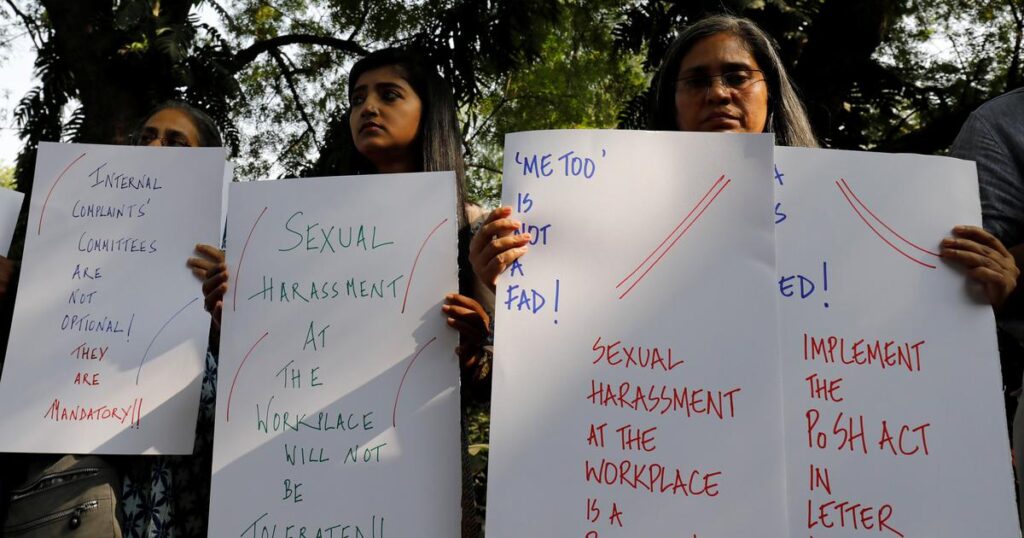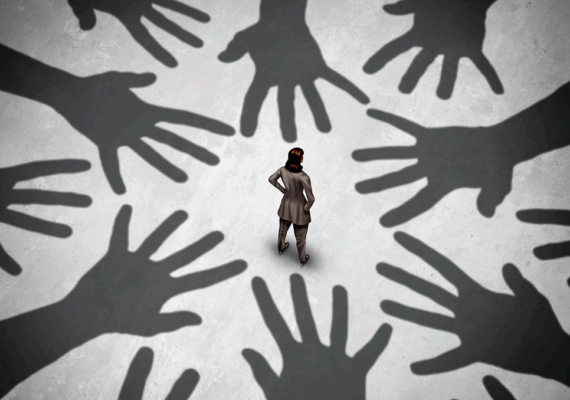The Vishaka guidelines were a set of guidelines that were intended to protect women against any kind of sexual harassment at the workplace. These were instituted by the Supreme Court of India in the year 1997.
Bhanwari Devi Case
Bhanwari is a woman belonging to a caste kumhar (potter) family and living in Bhateri, a village in the Indian state of Rajasthan, located 55 kilometres (34 mi) from Jaipur.
Most people of the village belonged to the Gurjar community of milkmen, which is higher in the caste hierarchy than Bhanwari’s. In the 1990s and even now child marriages are common in the village, and the caste system is dominant. Bhanwari was married to Mohan Lal Prajapat.
Bhanwari Devi was a Dalit government employee who was engaged in spreading awareness about hygiene and education and running campaigns against dowry and child marriage.
As a part of her employment, she was helping a young girl who was forced to marry at a young age by her parents.
However, there were powerful political personalities and influential people involved and she failed to stop the child marriage from happening. She tried to resist and carried out a rally but she was not able to stop the marriage from happening. In order to take revenge for the rallies and campaigns instituted against them, a group of people attacked Bhanwari Devi. She was gang-raped by these men in front of her husband.
The attack took place on 22 September 1992 and with the passage of so much time, Bhanwari Devi, no longer remembers the dates clearly, but the memory of the assault is still vivid in her mind.
She was working with her husband in their fields when 5 men started beating her husband up with sticks. She ran to help her husband, pleading with the men to show some mercy, but two of the attackers pinned him down, while the remaining three took turns to rape her.
Filing of Case
Bhanwari Devi filed a criminal case of rape against these men. However, policemen and other law officers. didn’t take her seriously . They took almost fifty-two hours just to file the complaint.
Adding to her woes, the Rajasthan High Court acquitted all these men of rape on flimsy reasons that women cannot be gang-raped in front of her husband and that the village head cannot be indulging in such acts.
The Rajasthan High Court convicted the five men of assault whose degree of punishment is much lesser than the crime of rape.
Widespread Protest
A group of non-profit organisations who worked towards the safety of women filed a petition in the Supreme Court of India seeking justice for Bhanwari Devi and thereby, the appropriate punishment for the men involved in gang rape. They filed public interest litigation by the name of Vishaka and contended that the fundamental rights of Bhanwari Devi were violated. They also sought a new set of guidelines for the protection of women.

The NGOs also mentioned the point of safety of women at workplaces in the PIL(Public Interest Litigation) filed owing to the fact that the employer of Bhanwari Devi did not accept any responsibility though the reason that Bhanwari Devi was raped was due to the work that she was supposed to perform as part of her employment. Hence, the PIL sought to develop a new set of guidelines for the safety of women at workplaces.
After local newspapers reported Bhanwari Devi’s plight and protests by women’s activists, the case was handed over to the Central Bureau of Investigation (CBI).
The five accused were finally arrested more than a year after the crime, and were charged with harassment, assault, conspiracy and gang rape.
While denying them bail in December 1993, Rajasthan high court Judge NM Tibrewal wrote in his order: “I am convinced that Bhanwari Devi was gang-raped in revenge for attempting to stop the marriage of [one of the accused] Ramkaran’s daughter, a minor.”

The Judgement
The judgement was given by a 3 Judge bench which held that the fundamental rights provided under Article 14, Article 15, Article 19(1)(g) and Article 21 of the Constitution of India are violated by the act of sexual harassment.
The court brought out the Vishaka guidelines for the protection of women at their workplaces and providing a safer working environment to the women.
The Guidelines
Vishaka guidelines, as laid down by the Supreme Court put the onus of a safe working environment on the employer.
The vishaka guidelines say that: “It shall be the duty of the employer or other responsible persons in work places or other institutions to prevent or deter the commission of acts of sexual harassment and to provide the procedures for the resolution, settlement or prosecution of acts, of sexual harassment by taking all steps required.”
The vishaka guidelines also lay down a grievance redressal mechanism that mandates all companies, whether operating in the public or private sector, to set up Complaints Committee within the organisation to look into such offences.

Features of the Vishaka guidelines
The main ingredients of the vishaka guidelines issued by the Hon’ble Supreme Court of India are elucidated as follows.
Definition of Sexual Harassment
The vishaka guidelines issued by the Supreme Court widens the meaning and scope of sexual harassment. It defines sexual harassment as an unwanted sexual determination which is directly or impliedly intended to cause the following:
- Physical contact or advances.
- A demand or request for sexual favours.
- Sexually coloured remarks.
- Showing pornography.
- Any other unwelcome conduct whether it is physical, verbal or non-verbal.
Provide a safer working environment
It is the duty of each employer to provide a safe working environment for each and every employee working in the organisation to grow and prosper.
This involves taking adequate steps towards protecting the interest of the women employees and ensuring that none of the employees indulges in the practice of sexual harassment.
Appropriate disciplinary action must be taken by the employer if any case regarding sexual harassment or ill-treatment of a woman employee is found.
Shivani Bose is a PoSH certified trainer and has been instrumental in implementing PoSH across industries.
She is an external panel member of ICC for various companies. She has conducted several workshops on Gender sensitization and PoSH awareness and had counselled several clients facing mental wellness and gender bias issues.
Proud HR Services is an end-to-end service partner for the implementation of Prevention of Sexual Harassment (PoSH) legal compliance.
We partner with companies on case redressal and policies to proactively build safer work cultures and sexual harassment (PoSH) trainings either in person or virtually. We will establish and clarify the roles and functions of each member. We also provide training for all employees and ICC. We also help in empanelment of external members of IC.
For more details on diversity, inclusion and prevention of sexual harassment, pls contact at info@proudhr.com
